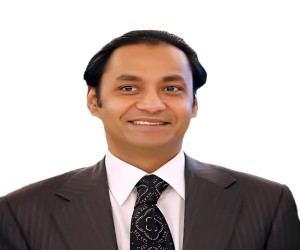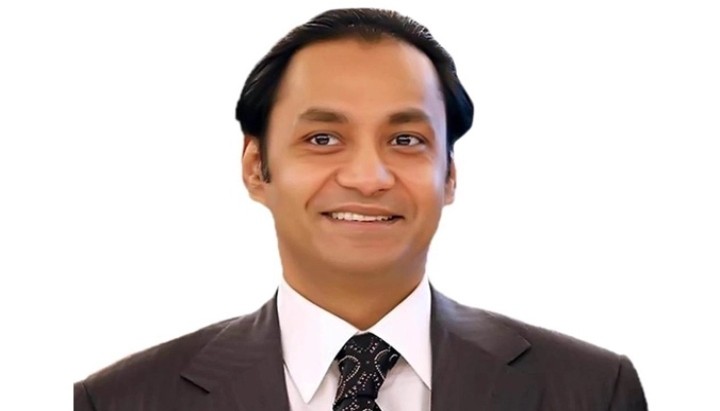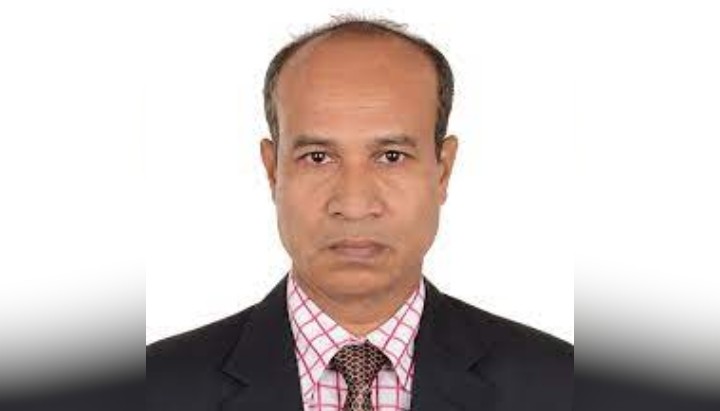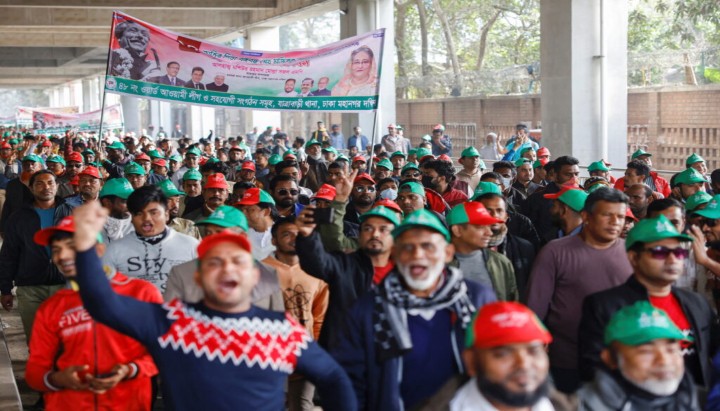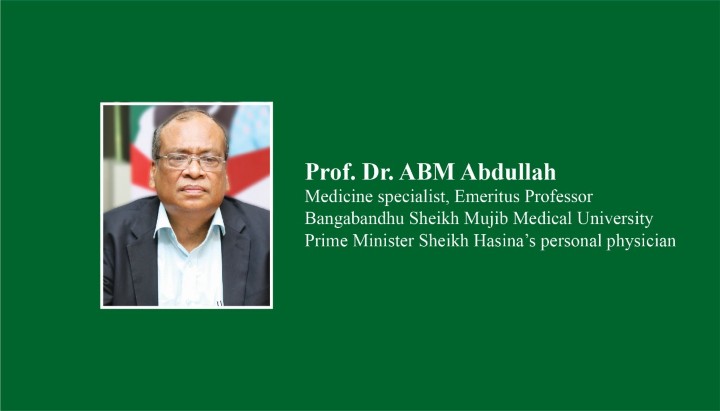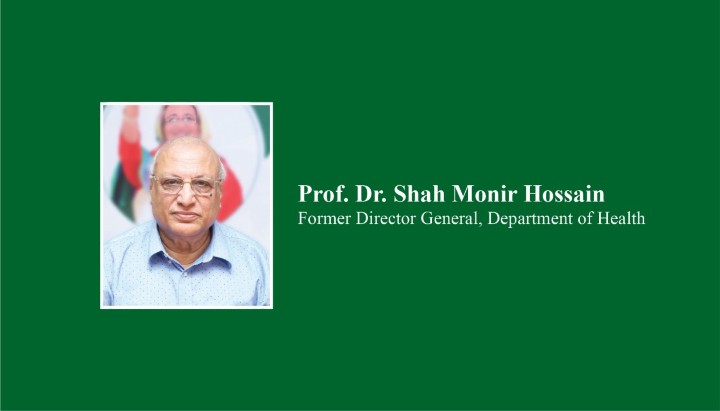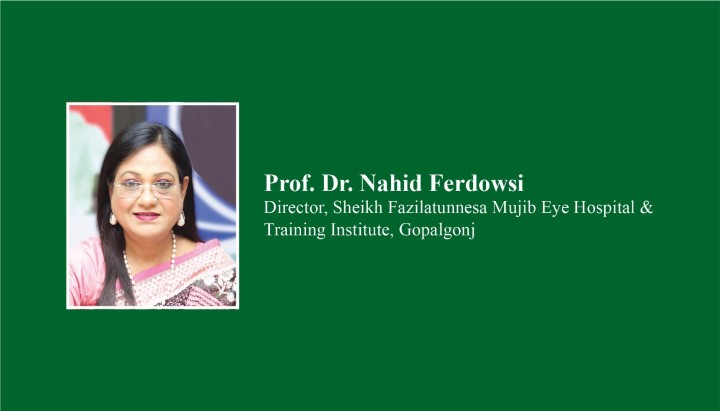After several breakthroughs,
Bangladesh has appeared as a rising tiger in South Asia. Breaking the circle of
hunger and poverty, leaving all threats behind, this Bangladesh is
invincible-irresistible. The frenzy of indomitable energy of millions of people
leads the nation to achieve a new identity- 'Solvent Bangladesh' in its golden
jubilee of independence, from the stigma of a 'bottomless bucket.' Bangladesh
is now an incredible amalgamation of communal harmony with unquestionable
success in economy, enterprise, industry, culture, education, and health.
However, before the impact of the deadly
coronavirus is over, the Ukraine-Russia war and global inflation have shaken
the economy of the whole world. Bangladesh has also been affected by the
worldwide recession. In the meantime, the global economic downturn has put the
country's entire economy in extreme danger. The declining trend of the foreign
exchange reserve of Bangladesh is the result of the global economic recession.
It directly impacts the lives of people from all walks of life. Especially
low-income people suffer severely since the cost of living is increasing while
income is decreasing badly.
The capital market could be the center of safe
income for ordinary people and small investors in this transitional period of
inflation and increased cost. If there is a developed, modern, and stable
capital market, even if inflation increases, people will have the strength to
combat it. Unfortunately, it was not possible to do that.
But everything is not over yet. We have a chance to
turn around. To build a prosperous and self-reliant Sonar Bangla of
Bangabandhu, the capital market, one of the essential parts of the financial
sector, must be radically changed. We want to come forward as a savior in this
situation. Keeping that goal in mind, ABG Limited, a subsidiary of Bashundhara
Group, is interested in becoming a strategic partner or strategic investor of
the Chittagong Stock Exchange (CSE). Happily, we are moving towards achieving
that desired goal. Now we will focus on establishing this capital market as an
equally supportive shelter for all.
Chittagong Stock Exchange already accorded
permission for commodity market from Bangladesh Securities and Exchange
Commission, the apex body of the capital market of the country. Now-a-days
foreign exchange has also become one of the pioneer instruments/securities
among all other securities of the capital market. Popularity of the foreign
exchange increased gradually over the years in the developed countries across
the world. You would be very happy to hear that, ABG already has taken notable
initiatives to on board foreign exchange, commodities and derivatives into the
trading platform of Chittagong Stock Exchange. We are particularly working on
how to on board commodities, derivatives (equity, commodity, FX) and indices at
the CSE’s trading platform with a collaboration of global capital market
leading companies. We believe, ABG will be able assist CSE to introduce all
above mentioned securities at the trading platform of Chittagong Stock Exchange
by 2030.
As the country's leading business conglomerate,
Bashundhara Group does not only focus on making money; it also performs some
responsibilities for the people and nation. Our slogan is -`For the welfare of
the country and people’, which was introduced by my elder brother. Since then,
we have all taken this sentence as a vow. One of our big goals is to achieve
the welfare of the country's people, and we are doing it differently. However,
it is good to get an opportunity to do something in people's interest through
the financial sector and the capital market. Hopefully, here too, we will be
able to achieve the target.
We have already started working. A US-based firm is
being tapped to make CSE technology-friendly. One of our goals is to bring the
capital market into the hands of every people in the country by making it
advanced and technology-friendly, primarily through modern technical
management. So that people can start investing from 5-10 thousand BDT for the
long term. It is better to make a small profit rather than keep money
uncirculated in the bank.
People from almost every country worldwide invest
long-term in the capital market along with bank insurance, which is a different
source of income. From this income, they can spend extra money at the end of
the year, or people can go on outings on holidays. But two big crashes in our
capital market in 1996 and 2010 have scared ordinary investors; now, people are
terrified of investing in the capital market. Even hearing the name of the
capital market brings negative questions to many people's minds. Most people
now need more confidence in investing in the stock market, including foreign
investors. This is mainly due to a need for more adequate information, fear of
manipulation by evil syndicates, and lack of stringent action against the
culprit of the capital market.
Although the two incidents have frightened ordinary
investors, no attempt has been made to restore the investors' confidence. We
want to light the lamp of lost hope in people's minds with a proper action plan
and make the process easy. So that investors trust the capital market again and
invest. It should work as an alternative source of their family income. As a
strategic partner or investor of the Chittagong Stock Exchange (CSE), ABG
Limited will first work to ensure easy access to information. Besides, through
the responsible officials of CSE, regular transactions in the capital market
will be monitored. So that no one can steal the money of the investors. For
this, the capital market regulatory body Bangladesh Securities and Exchange Commission
(BSEC) cooperation will be required.
Our neighboring nation India's National Stock
Exchange (NSE), has an average daily turnover of 22,724 crore rupees. Whereas
the average daily transaction in the two stock exchanges of Bangladesh is less
than a thousand crore. Many people will say that their population is around 140
crores, their economy is large, and the number of companies listed in the
capital market is high. But our population is more than 165 million. We are
lagging in terms of investment as a proportion of the population. So, why will
our transactions not be 1 part of 7? Why large capital companies will not be
listed in our capital market? Why foreign investment will not increase in our
capital market? Why can't trust be returned? It is possible.
Let me come up with an example of NSE; the National
Stock Exchange of India (NSE) became the world's largest derivative exchange'
in 2021 despite corona infection. The information came from the statistics
conducted by the Futures Industry Association (FIA). Also, according to the
World Federation of Exchanges statistics, NSE ranks fourth in the world in cash
equity based on the number of trades. We are at the very end of the list. The
reason for this is interdependence. We have to look to developed world
countries for technology. When you want to start something new, you are told
that it is impossible with us. But no one learns everything from the mother's
womb. New tasks, new challenges, and new experiences will come up, and we have
to face those. If necessary, we will hire a consultant to complete the work.
But we must be in charge of the work. If not, the multinational companies will
smuggle the money of this country abroad by earning in our country.
Look at the telecom companies in Bangladesh; Grameenphone
has 8.4 million subscribers, Robi Axiata has 5.48 million subscribers, and
Banglalink Digital Communication Limited has 3.85 million subscribers. There,
the number of subscribers of Teletalk Bangladesh Limited, owned by the
Bangladesh government, is only 67 lakh. Following the laws of the Bangladesh
government, other multinational companies have taken billions of money abroad
for telecom business, but Teletalk is not in that competition. The main reason
is the fear that we can't do it. At the same time, we have extra love for
foreign companies.
Multinational companies are also responsible for
the unlimited dollar crisis in the country today. Although these institutions
make thousands of crores of profit in the country, the new investment is minimal.
As a result, money is going abroad. The situation could have been different if
domestic companies were given investment opportunities like multinational
companies. Because the profit we make from the business is reinvested in the
country. The domestic labor market is our main strength.
Bashundhara Group has always been giving importance
to domestic products and domestic production. Many daily essential products are
being produced here to meet the needs of the country's people. Not only that,
the group has opened many avenues to earn foreign currencies which are helping
the country to curve down trade disparity. We are determined to play a role as
one of the regulators in the country's transitional period. Respecting the
country's laws and policies, we play a role in critical sectors. Similarly, we
want to have a positive impact on the capital market as well so that ordinary
investors regain their lost confidence.
But there needed to be an initiative to restore the
confidence of investors. Last year was the perfect time to take such a step.
Everything came to a standstill when the coronavirus started in 2020. Despite
that situation, the price of 300 companies increased in 2021 out of 368
companies listed in the capital market. Among them, the share and company
prices of 70 companies increased by more than 100 percent. Even after such an
unnoticed rise in the capital market, we could not attract investors. Or those
who came to the capital market at that time also moved to the sidelines due to
the fear of gambling. But if we could secure capital market investment,
Chittagong Stock Exchange could be a source of additional income for the middle
class.
Even though multinational companies invest in our
country and withdraw thousands of crores of money, there is little foreign
investment in the capital market of Bangladesh. Last September, only 1 crore 41
lakh BDT was invested in CSE. At the same time, DSE's foreign investment fell
to the previous seven-year low. This situation must be changed. Commodity exchanges,
as well as derivatives and options markets, will also be set to open at the
CSE. It will take three years to fully realize the dream that is starting
today. After 36 months, you will see a new CSE, which will be more modern and
secure. The system will be fully digitized and automated.
With investment in different countries of the
world, it becomes a settlement. The buyer gets the shares, and the seller
receives the money. But our settlement cycle is still T-2, and it is- the
percentage can be sold two days after buying the share. Similarly, the share
sale money is deposited to the investor's account after two days through the
banking channel. Banks are making a profit by using the money at this time. But
the investors do not get any benefit from this money. We should change the
trade cycle. ABG Limited will work to change this situation. Investors can buy
and sell shares whenever they want. Foreign investors will come to the capital
market of Bangladesh.
In addition to the secondary market, we bring reforms
in our primary and small-cap markets. Because the nameless companies are
stealing money from the capital market by submitting fake prospectus. Many
people think managers and audit companies are involved with this process. But
these issues should be presented to investors through proper investigation. As
a result, many companies went bankrupt after going public, but the investors
still needed to get their money back. In such a situation, restoring people's
trust without transparency and accountability is impossible. ABG Limited and
CSE will work together to protect the interests of investors.
Although many public and private companies in the
country have made thousands of crores of profit, they have yet to come to the
capital market through Initial Public Offering (IPO). Because, in the capital
market, investors must give financial accounts in four quarters a year, assets
and income-expenditure must also be shown. The annual General Meeting (AGM) of
all enlisted companies has to be held at the end of the year. As a result,
those associated with the company will be unable to do money laundering or
embezzlement even if they want to. They must come under the umbrella of
transparency. They don't want to do that. Therefore, the government should
reduce the tax benefits of multinational companies with large profits and list
them in the capital market. It will increase the fund of the capital market as
well as increase its depth. Investors will also be interested in the market.
Big companies want to avoid coming to the capital
market. But some companies struggle a lot to go to the capital market. For
example, a company applied to BSEC in February 2020 to raise funds for business
expansion. But the company was allowed to withdraw money in 2022. In the
meantime, the company has completed the development by borrowing from the bank;
this should be different. A one-stop service should be introduced for the
registration of new companies. Also, there should be the facility to open a BO
account through an app with only NID and mobile number. This will attract new
investors.
The investment process should be simplified for
ordinary and foreign investors. A strong unit should be opened to bring them to
the capital market. This unit will attract investors from different countries
to direct investment in Bangladesh. Apart from this, the students of various
public and private universities in the country should be allowed to invest in
the capital market under easy conditions, besides teaching them capital market
investment strategies.
At the same time, a balanced, orderly, and
sustainable capital market should be developed to maintain the continuity of
how Bangladesh is creating new successes in the development stage. And for this
purpose, Bashundhara ABG Limited is determined to stand by the investors with
all the necessary services and support.
As we all know, investors of our country have
already lost their faith in capital market. Again here we found to do something
good for the economy of the country. We believe an exchange with all types of
securities and sustainable secured global standard trading platform eco system
will be able to attract not only all classes of investors but also compel all
citizens of the country and foreign investors to invest in the capital market instead
of investing or depositing funds anywhere else. Hopefully we, ABG will be in a
very good position to transform the living standard of all citizens of the
country through revamping CSE. Moreover, to expedite the eco system of Capital
market in Bangladesh, ABG also integrated three more new business ventures with
a vision for vertical integration and financial inclusion. We, ABG Limited is
very happy to share the business identity of these specialized ventures with
business prospects.
ABG TECHNOLOGIES LIMITED has been incorporated to
create a digital payment gateway for faster transections of CSE. We believe it
will help to transform BSEC’s instant settlement desire to reality. Investors
may obtain an easy and transparent way to invest in the capital market. By
using this channel both investors and government of Bangladesh will be
benefitted and get direct privilege. The company may contribute to fulfil the
dream of digital Bangladesh of our Honourable Prime Minister. You would be
pleased to know that, the company is ready to work with CSE dedicatedly.
ABG Media Limited has been incorporated to
establish a dedicated TV channel, magazine, and newspapers for all types of
business ventures, especially the capital market. The company will be able to
contribute to branding and acquisition of new investors at the CSE.
ABG Datafication Limited has been incorporated to
act as the data centre of all companies of the biggest business conglomerate
known as Bashundhara group. The company has the ability to provide e-KYC
services to the exchange along with datacentre and other facilities subject to
the prior approval from relevant authorities.
With the contributions and assistance of ABG
Limited, capital market of the country will rise and CSE will become one of the
top exchanges of the world.
Developed world has already moved to the digital
economy. This digital economy will keep contribution to achieve Vision-2040 of
the government of Bangladesh. ABG Limited will contribute to transform
Bangladesh into digital economy by introducing utmost technology in the capital
market. We envision engaging grassroots-level people with capital market and would
like be a stakeholder of building Bangladesh with digital economy.
“Joy Bangla”

